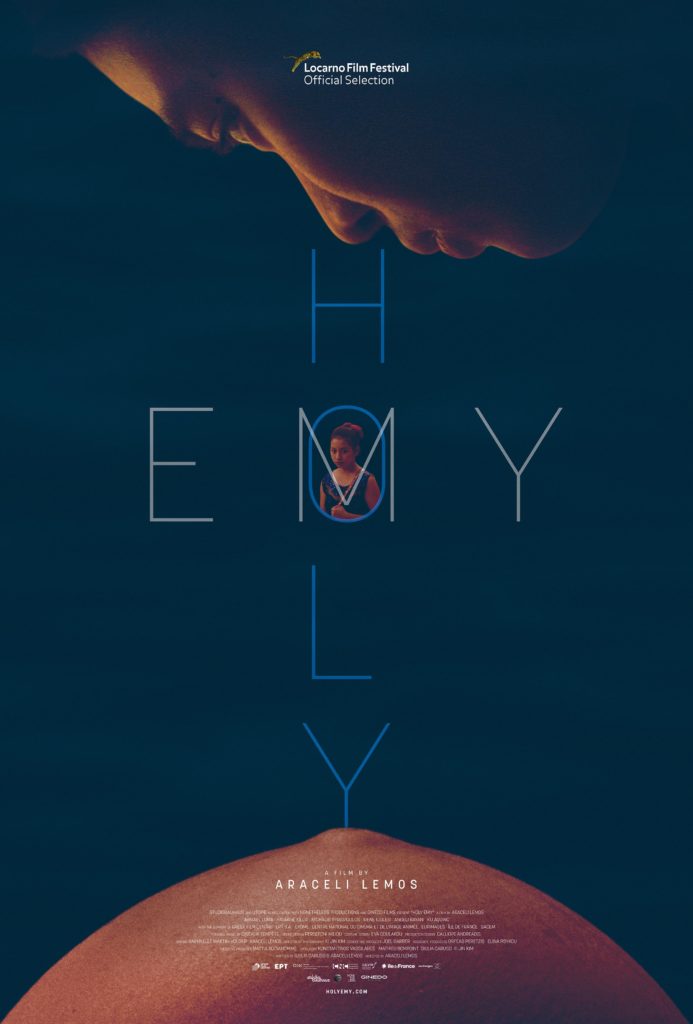
There’s a moment in Holy Emy, the striking debut feature from director Araceli Lemos, when sisters Emy and Teresa are speaking to their mother on a video call. Teresa, who is pregnant, complains about how she’s feeling and asks why God is punishing her. Her mother laughs before replying, “God never liked our family.” It’s a shocking line, and a clever bit of writing that gets at one of the central themes of the film: what we believe about God has enormous ramifications for how we live.
The sisters at the core of the film hold opposing viewpoints on spirituality. Teresa (Hasmine Killip) becomes heavily involved in her Christian church and listens fervently when her devout neighbor Linda (Angeli Bayani) spouts superstitious warnings. Emy (Abigael Loma), on the other hand, holds an unnamed spiritual power that reveals itself slowly over the course of the story. Emy and Teresa live alone in Athens, Greece because their mother has moved back home to the Philippines (for reasons that aren’t initially revealed). Teresa and Emy have a strong sibling bond; we see the two sisters genuinely caring for one another throughout the film. This is despite the distance that begins to grow when Emy chooses to explore her mysterious power, against the warnings of her sister and her largely Christian community.

Unfolding at a steady, meditative pace, Holy Emy feels deeply rooted in reality. The visuals are stark and at times gritty, and the music is atmospheric and brooding. And, while the film drags here and there, the script is mostly quite strong, both in its plotting and its dialogue. The performances are strong across the board, and the lead turn by Abigael Loma as Emy is really wonderful. Emy often keeps her emotions beneath the surface, but we as an audience never question what she’s feeling thanks to Loma’s expressive eyes. And, on the few occasions when Emy’s face does light up, it’s an emotional thing to see.
The realistic tone and slow pace of the film serve to make the occasional supernatural occurrences especially thrilling. We learn right away that Emy’s family is aware of her abilities. She’s touched from birth, in a sense, though it’s unclear whether she is blessed or cursed. One of the external effects of her condition is that whenever she cries, she cries blood. But the exact extent of Emy’s abilities is largely a mystery. Early in the film, we see Emy momentarily revive a beheaded fish in the market where she works. Later, she learns to hone her abilities and administers miraculous healings when she begins working at an alternative healing practice owned by the eccentric Mrs. Christina (Eirini Inglesi). There are also moments when Emy uses her abilities in ways that are a bit more morally ambiguous. Smartly, the script never lays out exactly what Emy is capable of, and we often learn what Emy can do when we see her do it for the first time.

The camera never lets you forget the vulnerability of two young women living by themselves in an uncaring city. Most of the people around Emy and Teresa want to manipulate them, use them, or, in the case of Teresa’s good-for-nothing boyfriend Argyris (Mihalis Siriopoulos), fetishize them. The religious community at the Filipino Charismatic Catholic Church that Teresa attends considers Emy cursed, and their neighbor Linda frequently mentions the danger of evil spirits which she believes have a hold on Emy’s life. The film follows Emy and Teresa down the paths their beliefs naturally take them; Teresa gradually becomes a more and more devout Christian, while Emy finds a place that seems to appreciate and value her rather than condemning her.
Aside from the supernatural moments, the high points of the film are the bits of dialogue around religious experience. It becomes clearer and clearer that Teresa’s church has no adequate response to Emy and her lifestyle, and Emy has some fascinating conversations with the people in her workplace. At one point,
Emy asks her mentor Luis (Ku Aquino) whether her healing powers come from God or the devil. He responds, “I say that neither God nor the devil are real. Only we are real.”
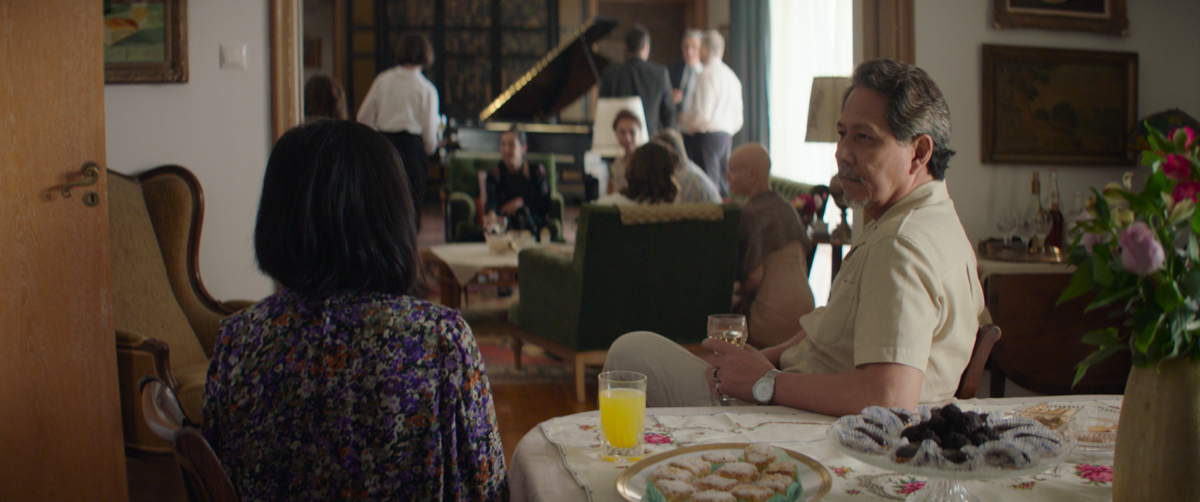
Themes of capitalism, exploitation, and religious trauma swirl around this story, as do philosophical concerns about the relationship between the soul and the body. The two sisters at the center of Holy Emy come to embody the difference between religion and spirituality, but without becoming caricatures. And the film doesn’t offer easy answers; neither side is clearly in the right, and both sisters experience disappointment in their respective communities by the close of the film.
These parallel journeys come to a head in the Holy Emy’s memorable conclusion; the ending of this film is simply astonishing. While watching Holy Emy, I found myself frequently reminded of Alfonso Cuarón’s Roma. In a similar way to that film, director Araceli Lemos taps into a raw emotion, and injects it with the kind of visceral body horror found in the films of Julia Ducournau. In some ways, Holy Emy feels like a debut feature— the pacing and tone are at times uneven and the script, strong as it is, feels a bit unfocused at times. But the unique setting of this film, along with the strong thematic elements around spirituality, make for a memorable and thought-provoking experience sure to reward patient viewers.
Holy Emy is now playing in limited release.
3.5 / 5
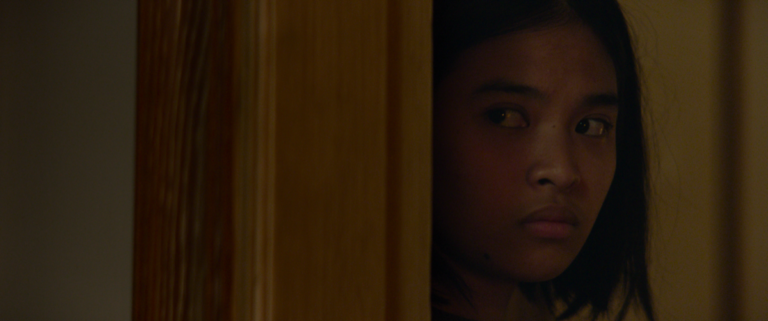


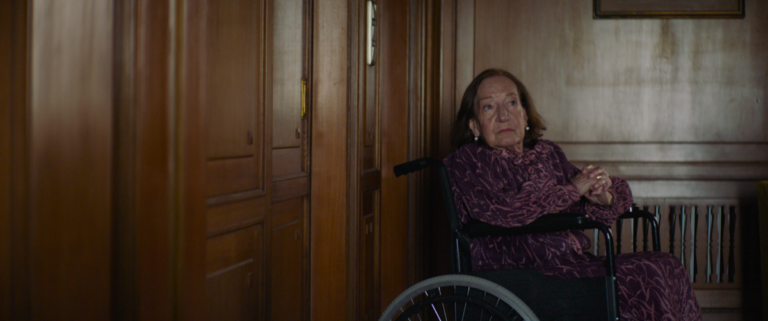
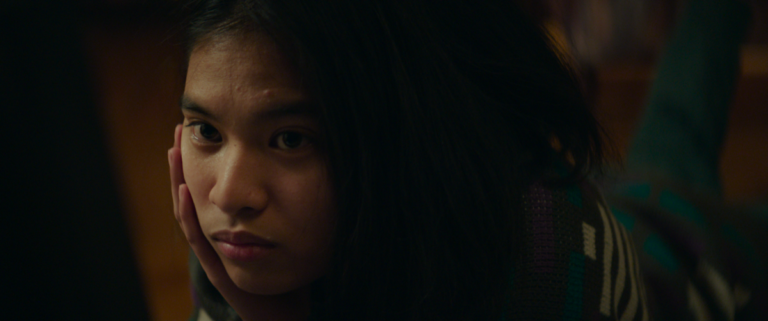
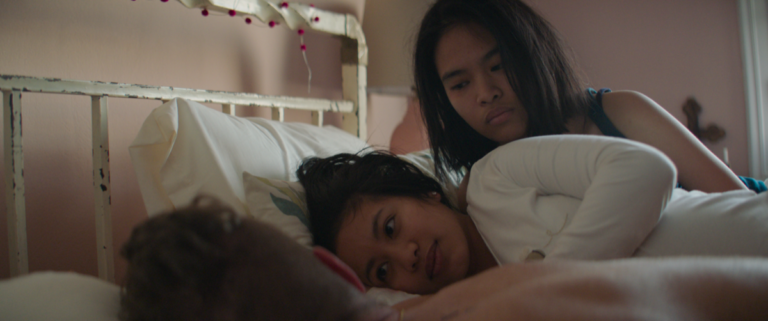
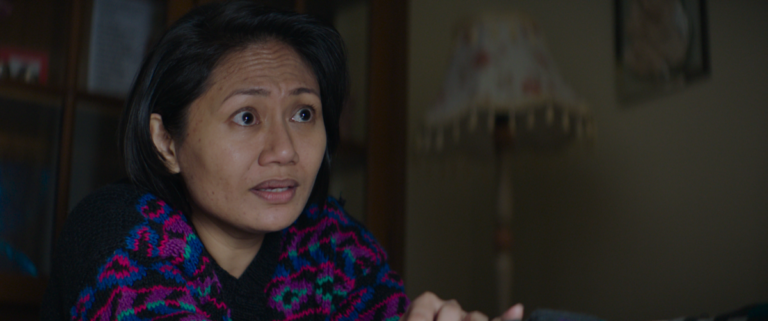

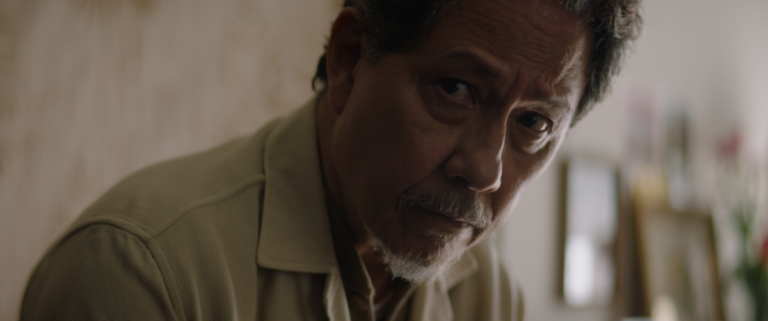

Images Courtesy of StudioBauhaus and Utopie Film






